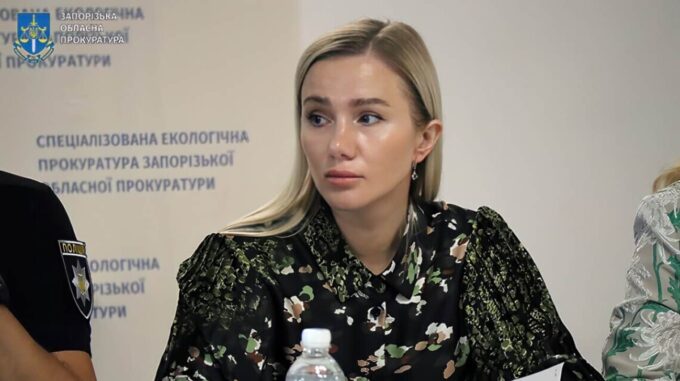The Center for Counteracting Corruption has exposed another prosecutorial figure who was attempting to evade accountability through suspicion of receiving a large bribe

Deputy Prosecutor of Zaporizhzhia Oblast, Nataliya Maksimenko, whom NABU and the Specialized Anti-Corruption Prosecutor’s Office suspect of demanding and receiving $40,000 to "silently" resolve criminal cases, took a different step — she mobilized to join the Ukrainian defense forces. This information was announced by the Center for Counteracting Corruption on its social media, adding that this event occurred on May 9, ten days before the scheduled court hearing regarding her case in the High Anti-Corruption Court. According to obtained data, Maksimenko, who was previously involved in investigations related to corruption abuses, made this move with a clear purpose — to gain additional protective privilege, which, according to anti-corruption experts, could significantly delay or even prevent her prosecution. The Center for Counteracting Corruption suggests that she, likely driven by a desire to avoid fair punishment, chose mobilization — similar to the case of other high-ranking officials, such as the former head of the State Fiscal Service, Roman Nasirov. Nasirov, before a verdict in his criminal case, which involved large-scale tax evasion and abuse of power, was also mobilized into the Armed Forces of Ukraine. This incident was met with a wave of criticism and questions about the legality of such actions. The Center recalls that in September 2024, Maksimenko was revealed to have been involved in a criminal scheme related to accepting a bribe. According to investigation, she received $40,000 to facilitate the lifting of a property seizure and to help an individual under investigation avoid criminal responsibility. The money was found in her car's trunk, and she was subsequently charged with bail set at 8 million hryvnias. After posting bail, she was released from detention and continued working; however, the article she is accused of carries a penalty of up to 12 years in prison. The top prosecutors, upon reviewing the situation, are trying to find legal mechanisms to avoid further liability. In the same context, it is recalled that Nasirov’s case became publicly known even earlier. Accused of a record-breaking bribe of 722 million hryvnias, like Maksimenko, he was mobilized into the army just a few steps before his court verdict. However, the Military Law Enforcement Service of the Ukrainian Armed Forces later announced an internal investigation into this matter, and also annulled Nasirov’s mobilization order — likely due to identified violations or attempts to evade punishment under the guise of military service. Such "maneuvers" with the mobilization of prominent officials spark heated debates in society and highlight a trend of using military duty to obstruct or prolong criminal investigations. The Center for Counteracting Corruption is concerned that the laws and procedural norms are not yet perfect, and until parliament introduces appropriate changes, dozens of high-profile cases — including those involving Maksimenko — will continue to be "stuck in limbo," expired by the statute of limitations. This effectively allows some individuals to evade justice even for committed crimes. Given all circumstances, it is clear that law enforcement agencies still have much work ahead to improve anti-corruption mechanisms and ensure that high-ranking officials who attempt to use any means to protect their interests are held accountable under the law — rather than escaping justice through tricks and lengthy procedural delays.

